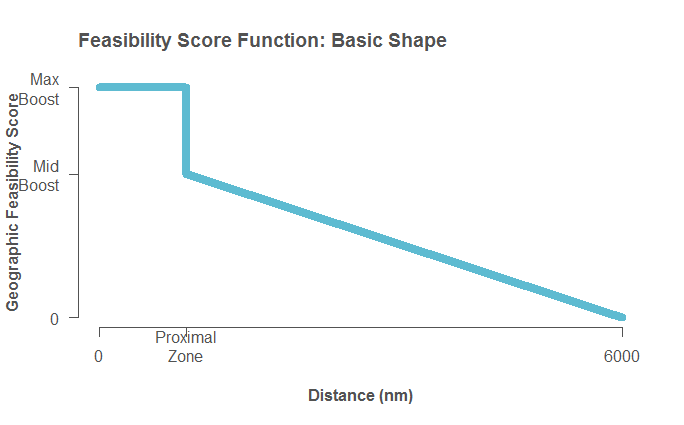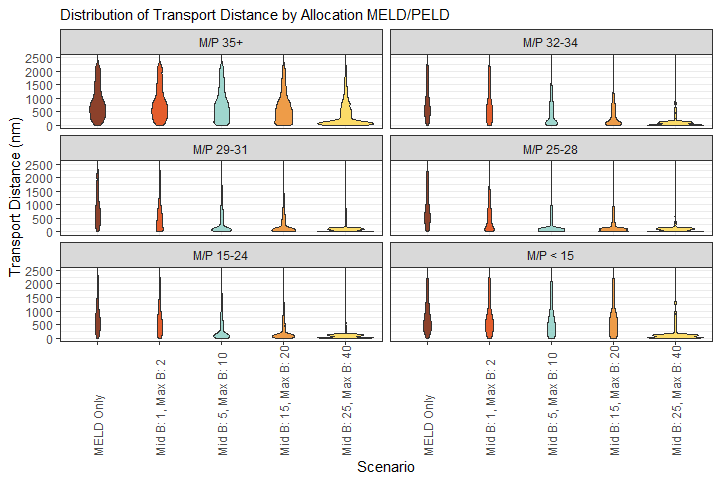Continuous Distribution: LSAM Simulation Study
1SRTR, Minneapolis, MN, 2Stanford Univ, Stanford, CA, 3Univ of Minnesota, Minneapolis, MN
Meeting: 2019 American Transplant Congress
Abstract number: 143
Keywords: Allocation, Donation, Economics, Liver
Session Information
Session Name: Concurrent Session: Liver: MELD, Allocation and Donor Issues (DCD/ECD) I
Session Type: Concurrent Session
Date: Sunday, June 2, 2019
Session Time: 4:30pm-6:00pm
 Presentation Time: 5:30pm-5:42pm
Presentation Time: 5:30pm-5:42pm
Location: Room 312
*Purpose: This liver simulated allocation model (LSAM) study of a simple continuous distribution system for several parameter values introduces and describes its characteristics, demonstrating how such a system could be implemented. Characteristics of the feasibility function will be decided through the OPTN policy-making process.
*Methods: In a continuous distribution system, candidates are offered organs after being sorted by a score. The score is the sum of two components: a medical priority score and a geographic feasibility score. The medical priority score is based on donor and candidate clinical characteristics. The MELD score estimates candidates’ disease severity, and donors and candidates are matched by blood type. The geographic feasibility score represents medical and financial costs of shipping organs long distances. A simple score function (Figure 1) gives preference to programs within driving distance of the donor hospital up to a threshold (proximal zone, 150 nm) with decreasing boost as distance increases thereafter. The maximum boost distance was 6000 nm for all comparison scenarios. Status 1 candidates were assigned a medical priority score of 50 MELD units.
*Results: Two parameters varied, representing the relative importance of geography: max boost and mid boost. The baseline for comparison was a simulation with no geographic feasibility score; i.e., national distribution sorted only on MELD score.
*Conclusions: Under the baseline (MELD only) sorting system, MELD score at transplant was similar across the country, with increasing variability as geographic feasibility scores increased. Changes toward more uniform MELD scores at transplant occurred due to more travel for the baseline and less travel for the scenarios with increasing geographic feasibility scores (Figure 2).
Figure 1
Figure 2
To cite this abstract in AMA style:
Weaver T, Salkowski N, Snyder J, Schladt D, Pyke J, Herreid A, Thompson B, Kim W, Lake J, Israni A. Continuous Distribution: LSAM Simulation Study [abstract]. Am J Transplant. 2019; 19 (suppl 3). https://atcmeetingabstracts.com/abstract/continuous-distribution-lsam-simulation-study/. Accessed February 19, 2026.« Back to 2019 American Transplant Congress


